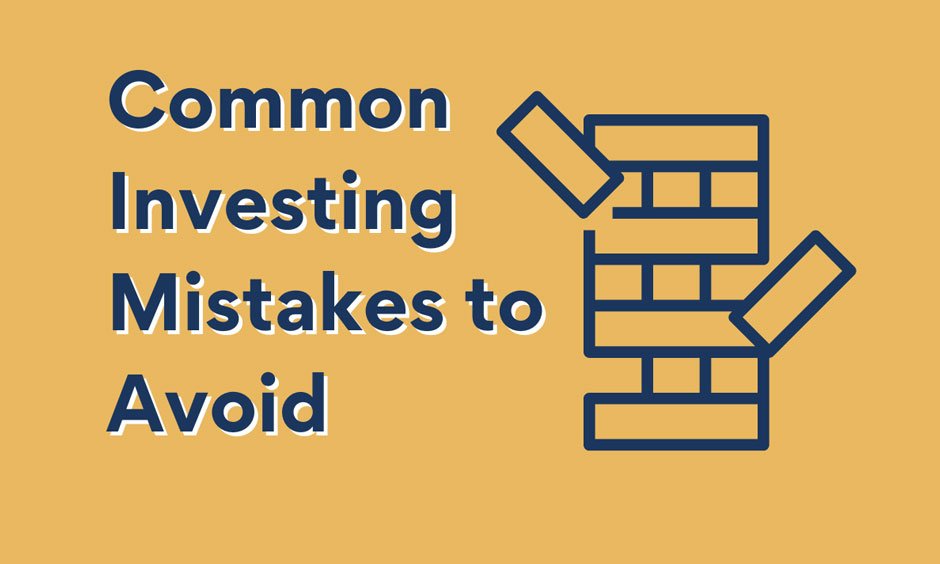 If you want to grow some wealth and secure your financial future, investing, such as investing in properties, can be a very good way to do it. However, while many people have made good money through their shrewd and savvy investments, others have not been quite so fortunate.
If you want to grow some wealth and secure your financial future, investing, such as investing in properties, can be a very good way to do it. However, while many people have made good money through their shrewd and savvy investments, others have not been quite so fortunate.
It is not uncommon for people who’ve put significant sums in stocks and shares to lose all of their money, and sometimes it’s because they have made simple mistakes that have resulted in them copping unnecessary losses or missed opportunities.
As an investor, particularly a new one, avoiding these pitfalls can make the difference between a portfolio that has a significant value and one that is virtually worthless.
So, how can you avoid common pitfalls when speculating on the stock exchange?
Here are some tips you should embrace to make smarter financial decisions and protect your capital.
1.Research Investments Properly
One of the biggest mistakes investors make, particularly new ones, is to jump into investments without conducting their due diligence or research. This applies to those investing not just in the stock market but also in things like real estate, commodities like gold, and cryptocurrency.
It is important to understand what you’re investing because if you don’t then you won’t be as well informed to make decisions as you should be.
For example, if you’re considering investing in WBC:ASX (Westpac Banking Corporation), you should make a point of analysing its recent performance and taking into account broader economic conditions before making a decision.
You should also read their company reports and earnings statements while getting a handle on their key financial metrics like P/E ratio, earnings growth, and debt levels, which can be helpful, too.
2.Have a Clear Investment Strategy
Many investors jump straight into the stock market without first understanding what they want to achieve, which can result in them making random investments that aren’t really suitable for what they want to achieve.
Before outlaying any money, take the time to set clear financial goals of what you are investing for, which could be your retirement, the purchase of a home or just to build wealth.
If you do this, you’ll be able to develop an investment strategy that gives you the best chance of bringing you the success you are hoping for.
3.Don’t Let Emotions Drive Decisions
Something most investors have been guilty of at some point in time is emotional investing, which, unfortunately, often results in poor financial outcomes.
Fear and greed can be two powerful motivators for investors to buy at market peaks and sell at market bottoms – which is about as far away from being a successful investment strategy as you can get.
To reduce the risk of this happening to you, it is vital to develop a clear investment plan and stick to it.
You should also avoid making decisions based on hype or social media trends from influencers with no real investing pedigree.
4.Diversify
You’ve no doubt heard of the adage ‘don’t put all your eggs in one basket’. Well, this is particularly applicable to the stock market because if you do, you open yourself up to the potential of substantial losses.
Putting all your money into one stock, sector, or asset class increases your risk significantly, so make sure you spread your investments across different sectors, e.g., technology, healthcare, finance, and asset types like stocks, bonds, real estate, and commodities.
You may also want to invest in international markets to reduce your dependence on one economy.
Overall, the more diversified your portfolio the more stability and reduced risk it has even during market downturns.
5.Invest Consistently
Many investors adopt a sporadic approach to investing based on buying equities when they think their prices are low and selling when they believe they have peaked. However, this is difficult to do, even for seasoned experts, and because markets are so unpredictable, they can change at the drop of a hat.
A far better strategy to generate long-term wealth is dollar-cost averaging (DCA), which involves investing a fixed amount of money regularly, regardless of market conditions.
It works on the theory that by doing so, you will purchase more of a stock at a lower price and less of it when its price rises, and therefore make more money.
6.Don’t Overlook Fees and Expenses
Over time, investment fees, management costs, and trading commissions can all eat into your returns. Unfortunately, many investors underestimate how these small costs can accumulate, and therefore the impact they can have on their ROI.
As a general rule, choose low-cost index funds and ETFs when possible, also avoid excessive trading as this will reduce your commission fees, and be mindful of expense ratios in mutual funds.
7.Don’t Ignore the Tax Implications
Taxes can significantly impact your investment returns, yet many investors fail to consider them when making their investment decisions.
Therefore, to avoid any nasty surprises from the ATO, it is important to talk to your accountant about what strategies you can employ to reduce the amount of tax you have to pay.





Leave a Reply